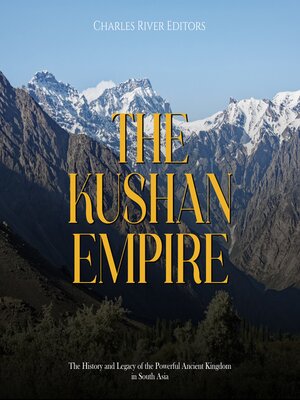The Kushan Empire
audiobook (Unabridged) ∣ The History and Legacy of the Powerful Ancient Dynasty in South Asia
By Charles River Editors

Sign up to save your library
With an OverDrive account, you can save your favorite libraries for at-a-glance information about availability. Find out more about OverDrive accounts.
Find this title in Libby, the library reading app by OverDrive.



Search for a digital library with this title
Title found at these libraries:
| Library Name | Distance |
|---|---|
| Loading... |
Long before it was known as Afghanistan, and even longer before it acquired its current reputation, Afghanistan's modern borders were fairly congruent with the ancient country known as Bactria. Bactria was the seat of several different kingdoms during the course of many centuries, but none were as successful as the Kushan Empire, the dominant political entity in Central Asia from the early 2nd century BCE until the early 3rd century CE, during which time the Kushan rulers played a major role in the first iteration of the trade networks known collectively as the Silk Road. The Kushans began as nomadic steppe warriors who eventually grew tired of constantly migrating and subsequently put their skills and experience to use by conquering Bactria and creating a kingdom that was stronger economically than it was militarily. Taking advantage of their location on the Silk Road trade routes, the Kushan kings charged fees and tolls for goods passing through their empire and developed over-land and sea routes that brought goods from China to Rome and vice versa. But silk, textiles, gold, silver, and other commodities were not the only things that entered the Kushan Empire from the East and West; the Kushan Empire was a focal point for the spread of ideas, diplomats, and diseases. Although the Romans and the Chinese never had direct contact, they both had diplomatic relations with the Kushan kings, who proved to be outstanding diplomats. The Kushan Empire eventually became a transit point of people and ideas, where enormous wealth was exchanged alongside early forms of monotheism, such as Zoroastrianism and Buddhism. The Kushan kings recognized these cultural benefits and so practiced a policy of patronizing different religious philosophies and maintaining peaceful relations with other powers along the Silk Roads to keep the flow of goods moving.







